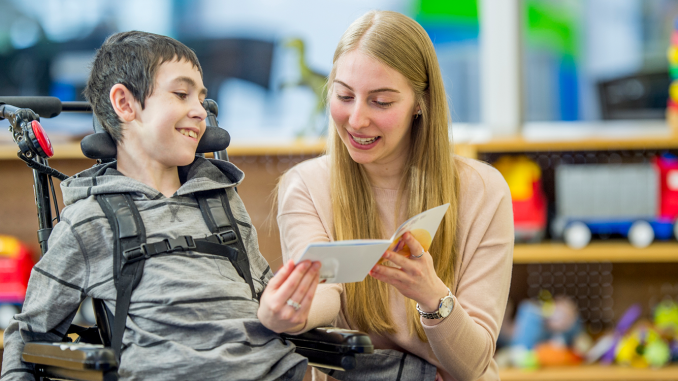
Inclusive education is a fundamental right that ensures every student, regardless of their abilities, background, or circumstances, has access to quality education. As societies become more diverse and awareness of equity issues grows, the importance of inclusive education is gaining recognition worldwide. In this article, we’ll explore the key principles of inclusive education, the challenges it faces, and how technology and policy are shaping its future in 2024 and beyond.
1. What is Inclusive Education?
Inclusive education is an approach that ensures all students, including those with disabilities, learning differences, or socioeconomic challenges, are welcomed and supported in mainstream educational settings. It emphasizes creating learning environments that cater to the diverse needs of every student, promoting equality and fostering a sense of belonging. In 2024, inclusive education is becoming a cornerstone of educational reform globally.
2. The Importance of Inclusive Education
Inclusive education benefits not only students with special needs but also their peers and the broader community. It promotes empathy, reduces stigma, and prepares students for a diverse and inclusive society. Research shows that inclusive classrooms improve academic outcomes for all students by fostering collaboration and mutual respect. In 2024, the focus on inclusive education will continue to grow as schools strive to create equitable learning opportunities.
3. The Role of Technology in Inclusive Education
Technology is playing a transformative role in making education more inclusive. Assistive technologies, such as screen readers, speech-to-text software, and adaptive learning platforms, are helping students with disabilities access educational content. Virtual reality (VR) and augmented reality (AR) are also being used to create immersive and accessible learning experiences. In 2024, technology will continue to break down barriers, ensuring that no student is left behind.
4. Universal Design for Learning (UDL)
Universal Design for Learning (UDL) is a framework that guides the development of flexible learning environments to accommodate the diverse needs of all students. UDL principles include providing multiple means of representation, engagement, and expression. In 2024, more schools will adopt UDL to create inclusive curricula that cater to different learning styles and abilities.
5. The Challenges of Inclusive Education
Despite its benefits, inclusive education faces several challenges. These include a lack of resources, inadequate teacher training, and resistance to change. In some cases, schools struggle to provide the necessary support for students with complex needs. In 2024, addressing these challenges will require increased funding, professional development for educators, and a commitment to systemic change.
6. The Role of Policy in Promoting Inclusion
Government policies play a crucial role in advancing inclusive education. Laws like the Individuals with Disabilities Education Act (IDEA) in the United States and the United Nations Convention on the Rights of Persons with Disabilities (CRPD) have set the foundation for inclusive education worldwide. In 2024, we can expect more countries to adopt and enforce policies that promote inclusion and ensure equal access to education.
7. Inclusive Education in Developing Countries
Inclusive education is particularly important in developing countries, where many children face barriers to education due to poverty, disability, or discrimination. Organizations like UNICEF and UNESCO are working to promote inclusive education in these regions through advocacy, funding, and capacity-building initiatives. In 2024, the global community will continue to prioritize inclusive education as a key driver of sustainable development.
8. The Role of Teachers in Inclusive Education
Teachers are at the heart of inclusive education. They play a critical role in creating supportive and adaptive learning environments. However, many teachers lack the training and resources needed to effectively implement inclusive practices. In 2024, professional development programs will focus on equipping teachers with the skills and knowledge to support diverse learners.
9. The Impact of Inclusive Education on Society
Inclusive education has far-reaching benefits for society. It promotes social cohesion, reduces inequality, and empowers individuals to reach their full potential. By fostering a culture of inclusion, schools can help build a more just and equitable world. In 2024, the societal impact of inclusive education will be increasingly recognized, driving further investment and innovation.
10. The Future of Inclusive Education: A Call to Action
The future of inclusive education depends on the collective efforts of governments, educators, families, and communities. It requires a commitment to equity, innovation, and collaboration. In 2024, we can expect to see more schools, organizations, and policymakers working together to ensure that every student has access to quality education, regardless of their background or abilities.
Conclusion
Inclusive education is not just a goal—it’s a necessity for building a fair and equitable society. By embracing diversity, leveraging technology, and addressing systemic challenges, we can create learning environments where every student can thrive. As we move into 2024, the future of inclusive education looks promising, with growing awareness and commitment to ensuring access for all.